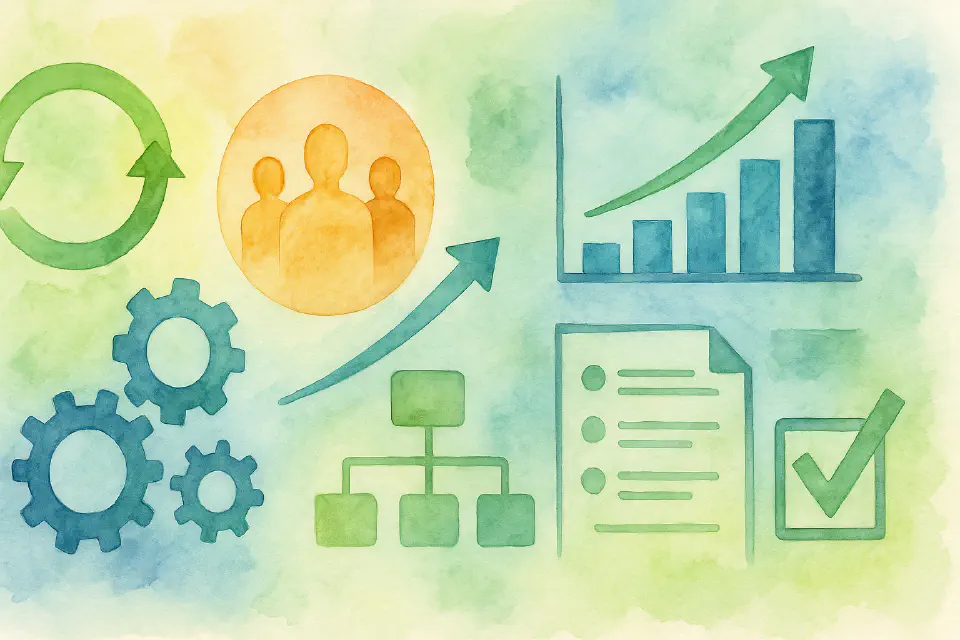
Human Resources Strategy and Organization
Welcome to HR Strategy & Organization — the core of modern, business-aligned Human Resources. This section helps HR professionals, business leaders, and transformation teams design strategic HR functions, lead organizational change, and align people practices to enterprise goals.
As businesses face increasing complexity, disruption, and the pressure to adapt, HR is evolving from an administrative function to a strategic architect of capability, culture, and growth. This section shows you how.
Strategic HR: From Support Function to Strategic Partner
Today’s HR teams are expected to do more than manage policies or hire talent — they are expected to help lead the business. That means building:
- Long-term HR strategies aligned with business goals
- Measurable workforce capabilities that drive competitive advantage
- Flexible operating models that scale and adapt
- Leadership and planning capabilities that sustain transformation
The content in this section is designed to help you architect and lead a modern HR function that doesn’t just support strategy — it helps shape it.
What You’ll Find in This Section
HR Strategy
How to develop, operationalize, and govern long-term HR strategies:
- Business alignment and HR planning
- People strategy vs business strategy
- Strategy governance, OKRs, and KPI reviews
- Data-driven strategy execution
HR Transformation
Guidance for major change programs:
- Digitalization and culture shift
- Capability building and enablement
- Governance and ownership of change
- Employee-centric design and execution
HR Operating Models
Understand the models that define modern HR structures:
- Ulrich Model (CoE, Shared Services, HRBP)
- Agile HR & Product Teams
- Platform-based HR (HR-as-a-Service)
- Embedded vs centralized HR, governance roles
HR Organization & Leadership
Build a capable HR function with strong leadership:
- Org structure and team design
- Role of CHRO, HRBP vs generalist
- Centers of Excellence and business partnering
- Succession in HR leadership
Workforce Planning
Shape future capability with data and insight:
- Strategic forecasting and headcount planning
- Scenario planning and critical roles
- AI-driven workforce analytics
- Talent risk indicators
Change Management
Frameworks for leading transformation:
- Stakeholder mapping and communication planning
- Change readiness assessments
- Change agents and reinforcement tactics
ESG & Sustainable HR
Connect HR to broader societal goals:
- ESG frameworks and reporting
- Green HR and ethical employment
- Inclusion and social KPIs
Global vs Local Strategy
Balance consistency with flexibility:
- Talent portability and localization
- Global HQ vs regional HR tensions
- Cultural alignment and global mobility
Organizational Agility & Resilience
Design HR for volatility and complexity:
- Agile principles and decision-making
- Structural resilience and distributed leadership
- Models for crisis readiness and bounce-back
Who Should Use This Section
This section is tailored for:
- HR Leaders shaping the strategic direction of their function
- HR Business Partners supporting business units with aligned people strategies
- Transformation Teams executing change initiatives
- Organizational Designers building adaptable structures and processes
Whether you’re scaling an HR function, merging teams, or redesigning your HR model — this is your strategic guide.
How to Navigate
Each page within this section focuses on a critical domain of HR strategy. You’ll find:
- Clear explanations of frameworks and models
- Practical application tips
- Example structures, tools, and metrics
This is not theory for theory’s sake — it’s HR strategy you can apply.
👉 Start with Strategic Value of HR or HR Strategy to explore how HR contributes to competitive advantage.
HR is Strategy
More than ever, HR is about:
- Aligning people and business priorities
- Designing agile, ethical, high-performing organizations
- Leading change with data, empathy, and courage
Welcome to the strategy engine of the HRM Guide.